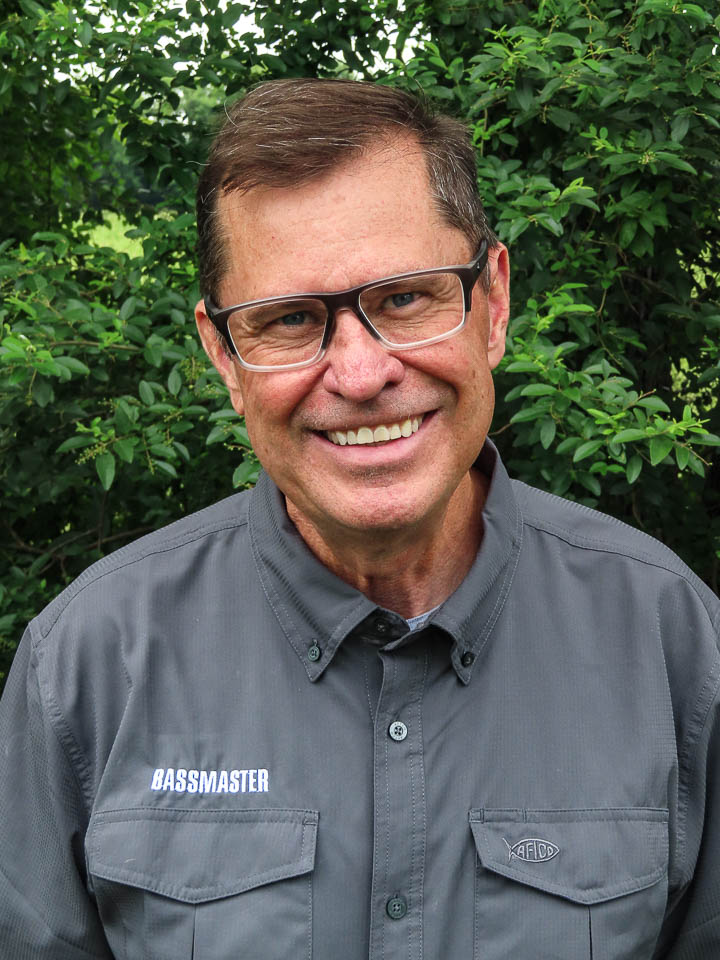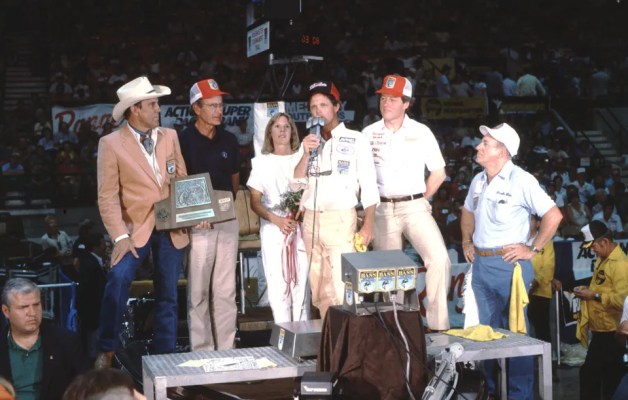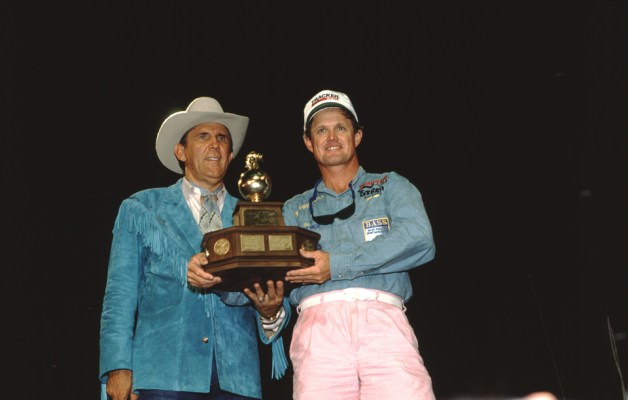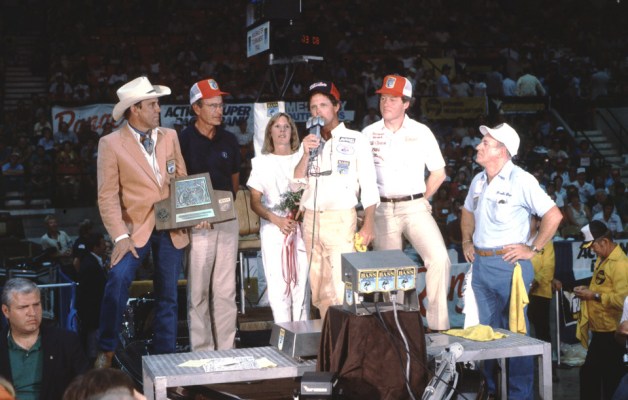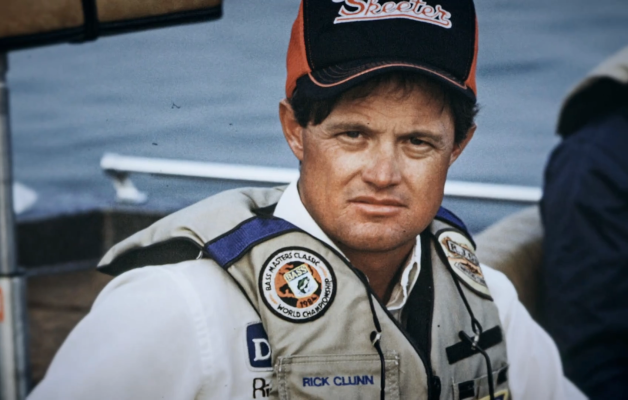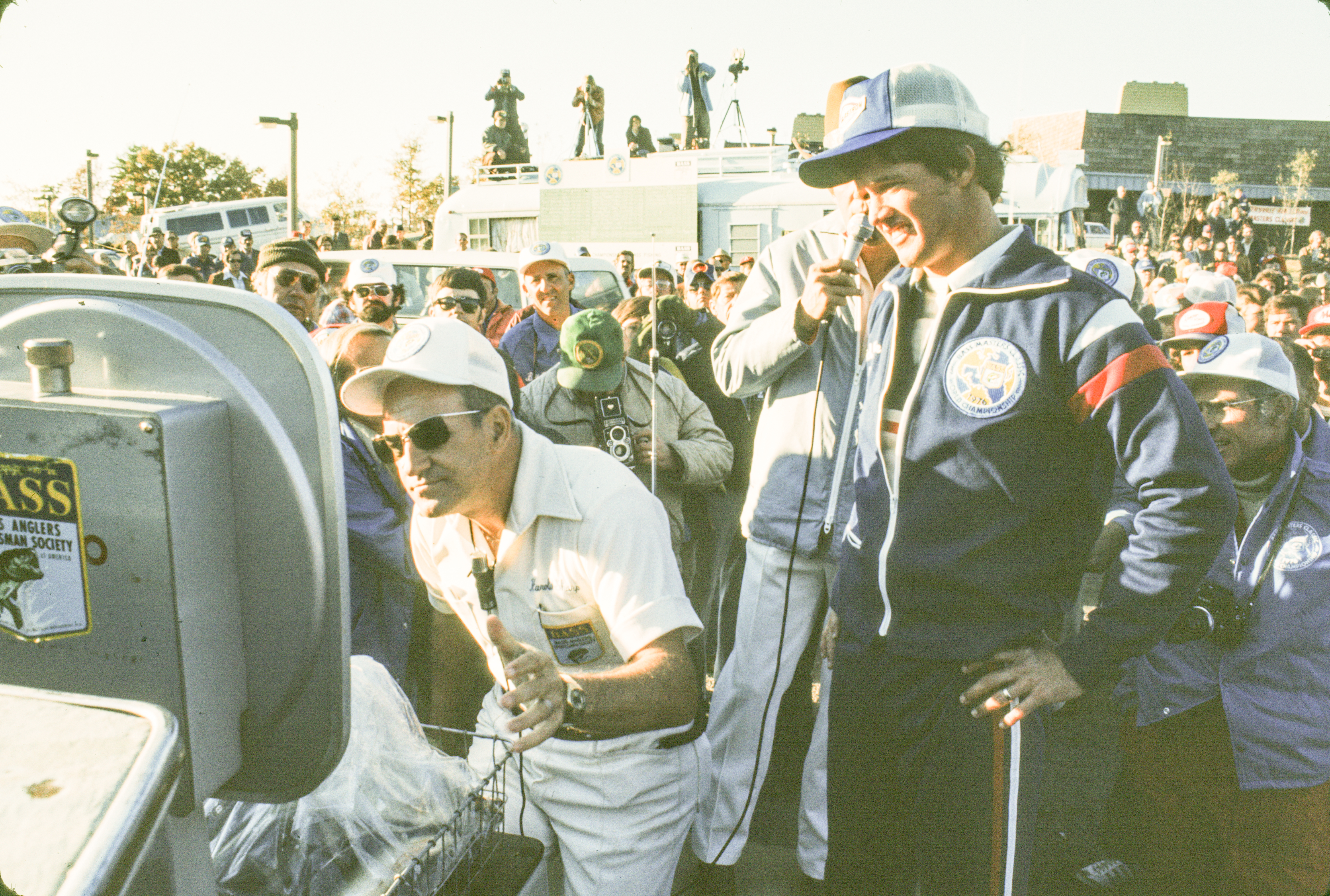
The lures used by Rick Clunn to win the 1976 Bassmaster Classic on Lake Guntersville are well known. What is not is the untold back story of how the winning pattern evolved on a chartered flight from New Orleans to Huntsville, Ala., and developed into the most fundamental of bass fishing principles used today.
First, let’s get the bait formalities out of the way. Clunn won using two lures: a Bagley Honey B crankbait and a modified Fleck Weed-Wader tandem spinnerbait, with Clunn upsizing to No. 7 and No. 8 Indiana blades. Clunn also removed the core from a rubber-cored sinker and pinched it on the spinnerbait’s main arm. Doing that enabled the bait to create a bulging, strike-enticing wake just beneath the surface of the water with the over 1-ounce bait.
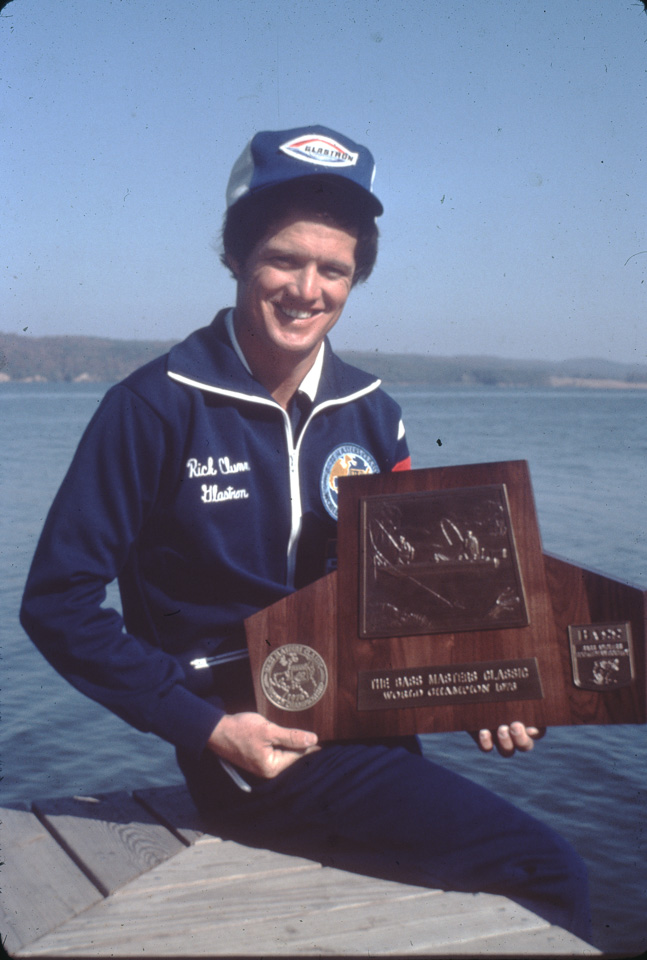
Here’s the interesting back story. Back then, the anglers and media met at a central location, boarded a chartered jetliner, and B.A.S.S. president Ray Scott announced their destination after reaching cruising altitude on the “mystery flight.” The 1976 flight departed from New Orleans and landed in Huntsville, Ala., a short bus ride to Guntersville.
The revelation on how and where Clunn would win his first of two fall world championships came after he noticed a telling sign from the passengers that would spark a career-changing milestone.
“I could see the doubt in their faces, hear the uneasiness in their voices,” Clunn said. “They had programmed themselves to fish the same way all year using local information, and there was no way to do that with the Classic.”
Clunn was the outlier. Self-reliance prepared him for the unknown at every tournament. He didn’t have personal relationships with the other anglers, having to approach each tournament without any outside information.
“I was practicing for the qualifying tournaments the same way I would at the Classic by being self-reliant,” Clunn said. “That gave me the confidence that I could figure out the fish faster than anyone on that airplane; it was my first introduction to the power of seasonal patterns.”
From his previous Classics held during the fall season, Clunn knew the winning patterns evolved in the backs of major creeks. Maps were handed out on the flight, and Clunn put his finger on the two largest creeks in Guntersville, where he surmised the biggest bass would be feeding on shad, and where he would eventually win the Classic.
“I knew there had to be an intelligent way to win it; you just couldn’t go out there and get lucky,” Clunn said. “That’s where I started putting it all together about seasonal patterns.”
Clunn’s win solidified his theory, and he went into an intellectual deep-dive of how to expand it. He did that by sectionalizing lakes, which had never been done before. A student of the game, Clunn credited Roland Martin for inventing pattern fishing, and he took it to the next level.
“Basically, I wrote a manual on how to pattern bass by the season; we knew the theory but not the definition.”
The first chapter of that manual was impressive. Clunn won the Classic with 59 pounds, 15 ounces, including a record-setting limit on Day 2 weighing 33-05, with largemouth weighing 7-13, 6-5, 6-3 and 4-9. The first 20 pounds were in the livewell by 8 a.m.
In Brown’s Creek, Clunn discovered a mass of largemouth relating to a milfoil-covered submerged hump. Clunn retrieved the spinnerbait around the milfoil used by the bass to ambush the shad around the adjacent 7 to 10 feet of water.
“I discovered the big bass would use the spot when there was cloud cover, or when the bright sunlight had not yet penetrated the milfoil,” Clunn said.
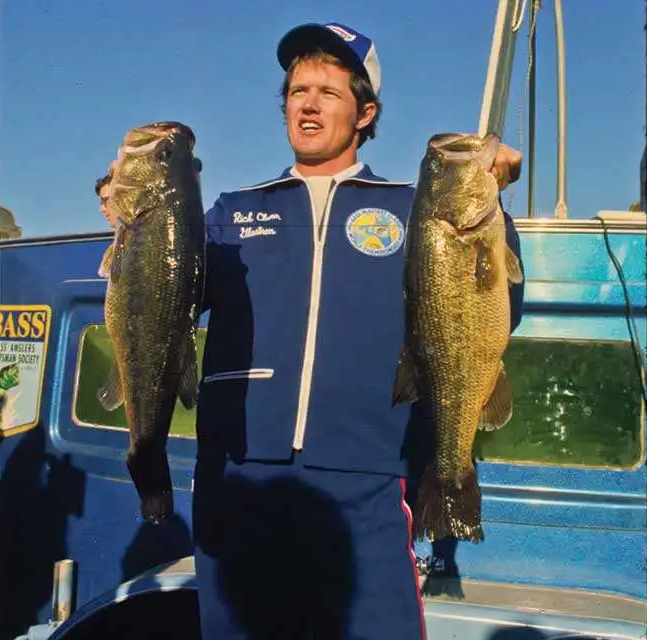
His other area in Beech Creek was ideal for the crankbait. An early fall cooldown and falling water level had Clunn focusing on vertical banks that allowed the bass to adjust to the changing weather while feeding on shad. The back of Beech Creek offered the perfect setup with a deeper hole in 8 feet of water, where he used the crankbait.
Clunn’s big bass binge enabled him to win the Classic by 3-11 over runner-up Bo Dowden, also winner of the 1980 Classic.
Even back then, Clunn spoke with a sort of deep intellect that would define him over the 50 years of his stellar career. Here’s his quote from Bassmaster.
“In any sport or business, the most successful have more than just ability. What level of fishing success you seek will be greatly affected by your confidence, enthusiasm and dedication. The degree of these intangibles you possess will determine your eventual degree of success.”
You’ve got to wonder what was going through Clunn’s mind at the time. What is certain is that statement went on to define what was eventually three continuous decades of Classic dominance, with a win the next year and two more in the 1980s and 1990s, respectively.

